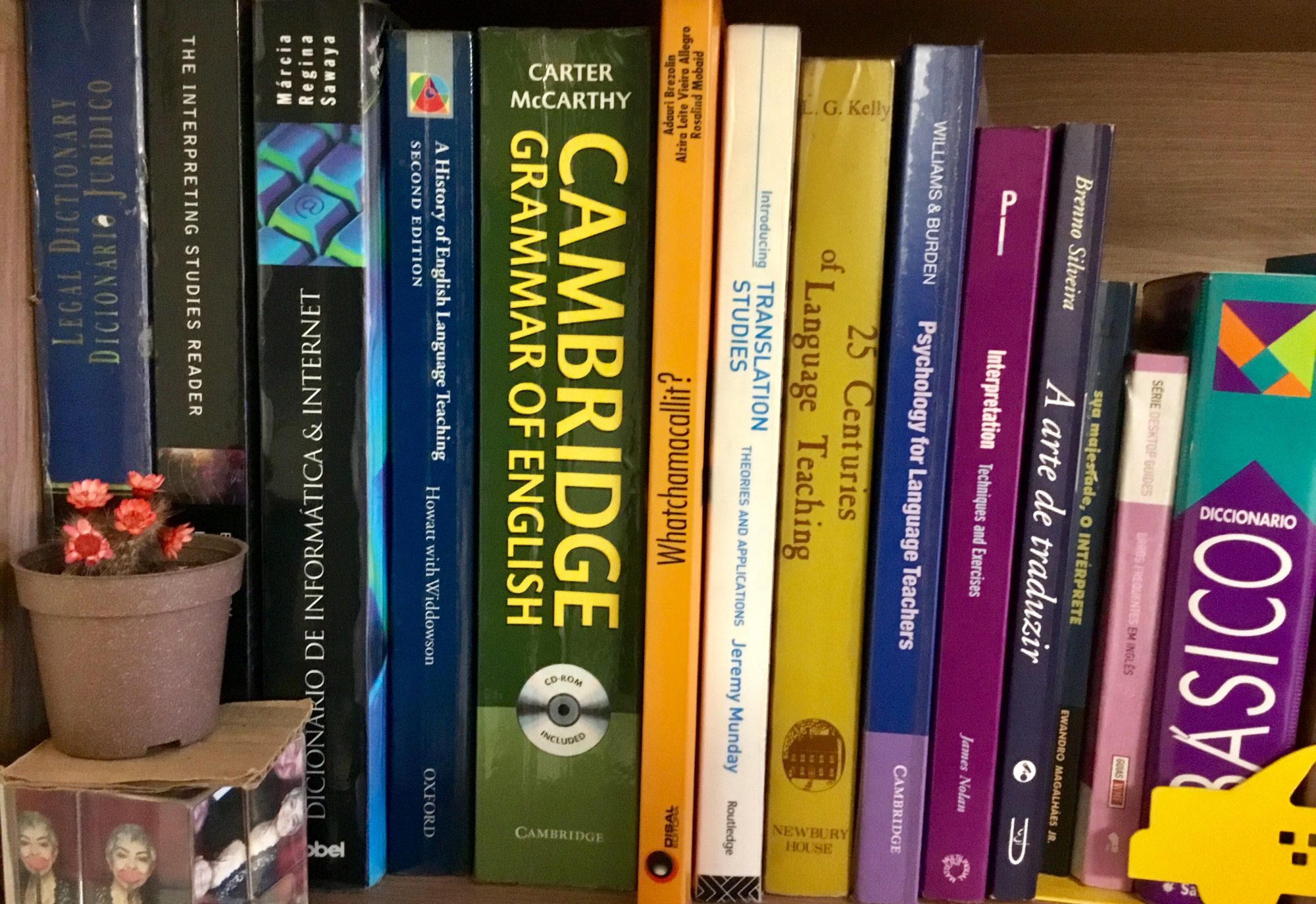This morning, my student Alice arrived all upset because she’d been stuck in traffic for nearly two hours and had missed 90% of her class. But despite all the rush she brought up a very pertinent question:
She asked: “How can I improve my listening?”
 She’s just returned from a week’s vacation in New York City and told me she had not had any significant listening problems – of course most of the time she’d been meeting up with fellow Brazilian friends and speaking Portuguese – but when she is watching her favorite TV series – Homeland or Scandal, for example, she misses much of what they say. Even the subtitles are too fast. So, how can she improve her listening to better understand native natural speech?
She’s just returned from a week’s vacation in New York City and told me she had not had any significant listening problems – of course most of the time she’d been meeting up with fellow Brazilian friends and speaking Portuguese – but when she is watching her favorite TV series – Homeland or Scandal, for example, she misses much of what they say. Even the subtitles are too fast. So, how can she improve her listening to better understand native natural speech?
Firstly, in some cases, the dialogues in TV series are not THAT natural. A quick search on the speech speed used in TV series brought me this info:
*Fans of writer-producer Shonda Rhimes are already used to the blazing speed with which her characters must deliver their lines, but her prime time dramas “Grey’s Anatomy” and “Private Practice” have nothing on “Scandal” when it comes to the sheer volume of words spoken per second.


Just ask lead actress Kerry Washington.
“In some ways I feel like doing David Mamet on Broadway was the perfect training for doing television with Shonda Rhimes, because they’re two immensely talented, prolific writers who value the English language, who require a real commitment to language,” she says. “Their work is so athletic – in film and in television. The physical requirements are so great.”
Asked why she demands that her “Scandal” cast rapid-fire their lines, Rhimes said the approach serves several purposes.
“Part of ‘Scandal’s’ pace was born of me not wanting actors to linger in the moments, in the sense of it’s a world in which everyone is really incredibly busy, and there’s no time to feel your feelings,” said Rhimes. “So part of it was that. Part of it was that I wrote a pilot that was, like, 75 pages long.”
Her co-producer Betsy Beers says: “It’s funny how much you can get in if you talk really, really fast.”
Read more at http://www.eurweb.com/2012/11/why-is-the-dialogue-so-fast-in-abcs-scandal/#Kta2bugSQKDAuzId.99
So how could my students improve their listening comprehension?
It’s an easy-peasy answer: by listening lots and lots of English.
I notice in my own self-taught French lessons – I’m on a pre-intermediate level in Voltaire’s language – when I listen to tv shows, news, series and/or podcasts in French on a more regular basis, let us say, Monday through Friday for at least 15 minutes – my listening improves for the next time I’ll be listening to something in that language.
So my advice pearls would be:
- Make listening a fun daily habit – no point in torturing yourself listening to things you find boring. Documentaries have a slower paced narration but if you don’t like watching them try a cartoon, a soap, a movie, whatever appeals to you.
- Take advantage of “convenient” moments. Stuck in traffic? what’s the point in listening to the traffic reporter hovering over your head saying that there is a huge traffic congestion. Listen to your new target language.
- Listen to native English speakers (or any other native speakers of the language you want to learn). Use podcasts – tonnes of different ideas and interests. Try Online radio.
- Listen to non-native English speakers. Yes, that’s right. In today’s world you’ll come across people from around the around using English to communicate. That’s what you need, isn’t it?
Since you are so excited about developing your listening skills please find below some more podcasts developed with the English language learner in mind
1. 6 Minute English podcast – produced by the BBC with 2 hosts always asking some challenging question found in the news
http://www.bbc.co.uk/worldservice/learningenglish/general/sixminute/
2. All Ears English podcast – 2 chicks always teaching some cultural and language point in the English spoken in the US. Beware: one of them slurs and speakstoofastasifshecouldntbotherwhethershesunderstoodornot.
http://allearsenglish.com/
3. Aprende Inglés con la Mansión del Inglés – 2 dudes (one from Belfast and another from London) host the show with good humor and focus on a teaching point. Emphasis on Spanish speakers http://www.inglespodcast.com
4. Business English Q&A –
US-born Ryan now living and working in Germany develops a great series of interviews with successful English language learners from different parts of the world trying to discover the common traits, tips and techniques to assist in learning a foreign language more effectively.
http://www.businessenglishqanda.com/
5. English Harmony Podcast – prepared by Robby, a non-native English speaker with tips on how to learn English more effectively.
http://englishharmony.com/english-harmony-podcast/
6. Real Life English podcast – a group of young teachers from the US, Australia and some other beaches I can’t remember they try to encourage students (female students, mostly) to learn and practice English. First produced in Belo Horizonte, Brazil now they’ve spread to Chile. Oh, yeahhh.
http://reallifeeng.libsyn.com/
7. English Experts Podcast – Produced by non-native English speakers focuses on the common needs of Brazilian English learners.
https://archive.org/details/EnglishExperts-Podcast
8. ESL Podcast – The host for the podcast is Dr. Jeff McQuillan, directly from sunny Los Angeles, and he helps read the scripts and provides explanations for them.
https://www.eslpod.com/website/
9. Luke’s English Podcast – produced and hosted by Luke from England – it’s a very good way to expose yourself to British English. But it requires a little patience usually no shorter than 45 minutes.
http://teacherluke.co.uk/
10. Richard Vaughan Live podcast – controversial Texas-born Richard Vaughan has painstakingly been trying to teach English to Spaniards. His ramblings are quite entertaining. I love the episodes when he loses his temper with some of his on-air students.
http://www.ivoox.com/podcast-richard-vaughan-live_sq_f180769_1.html
11. VOA’s Learning English Podcast –
dating back to their shortwave transmissions even before the Internet, VOA has been my companion with good quality of listening content on American history, words and news.
http://learningenglish.voanews.com/podcast/0.html
Phew, I think that will keep you busy until next year.
I’m sure this will help you out. And if you feel you still need to improve your listening comprehension repeat steps 1-3 as many times as necessary.
Cheers and happy listening.
Mo

